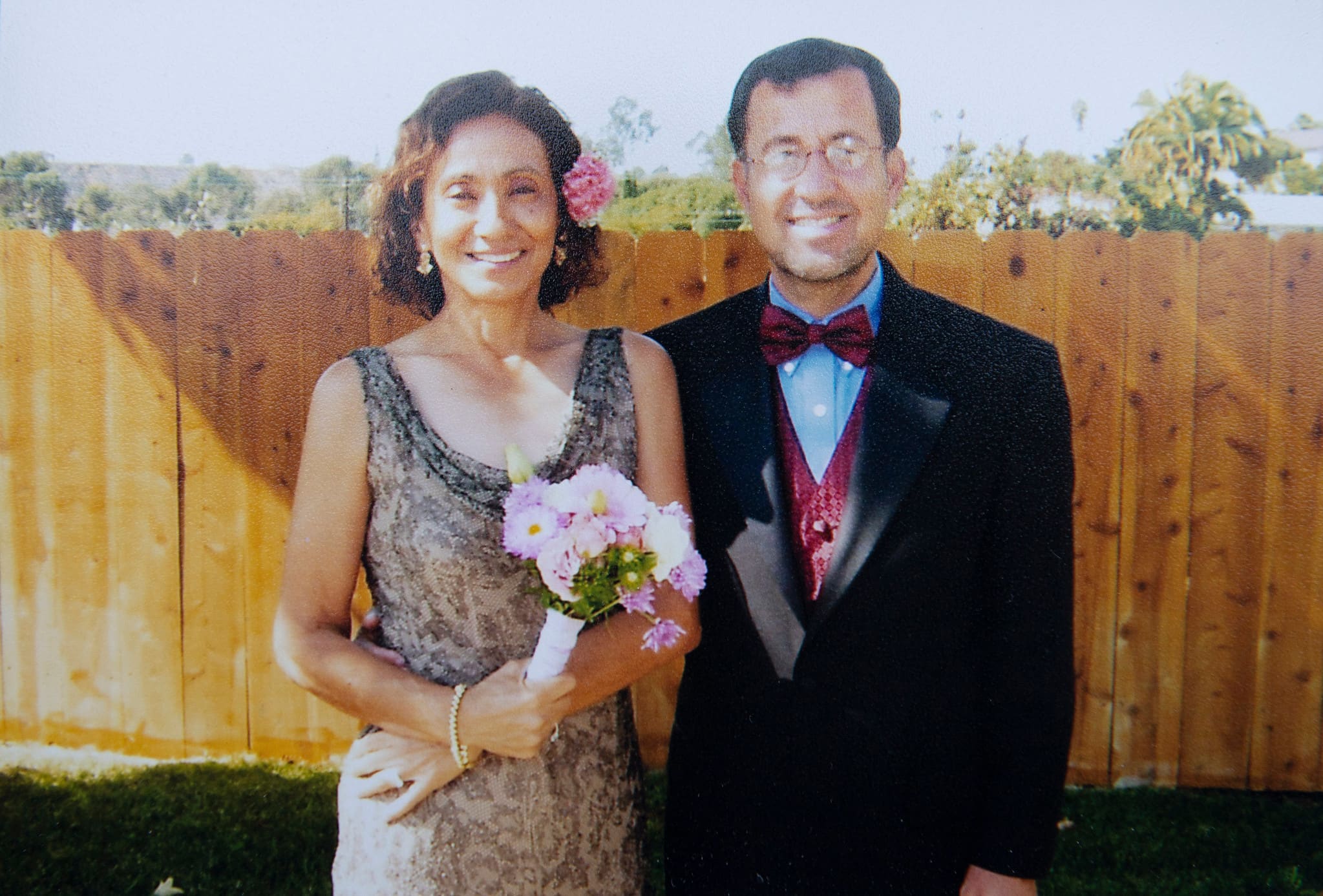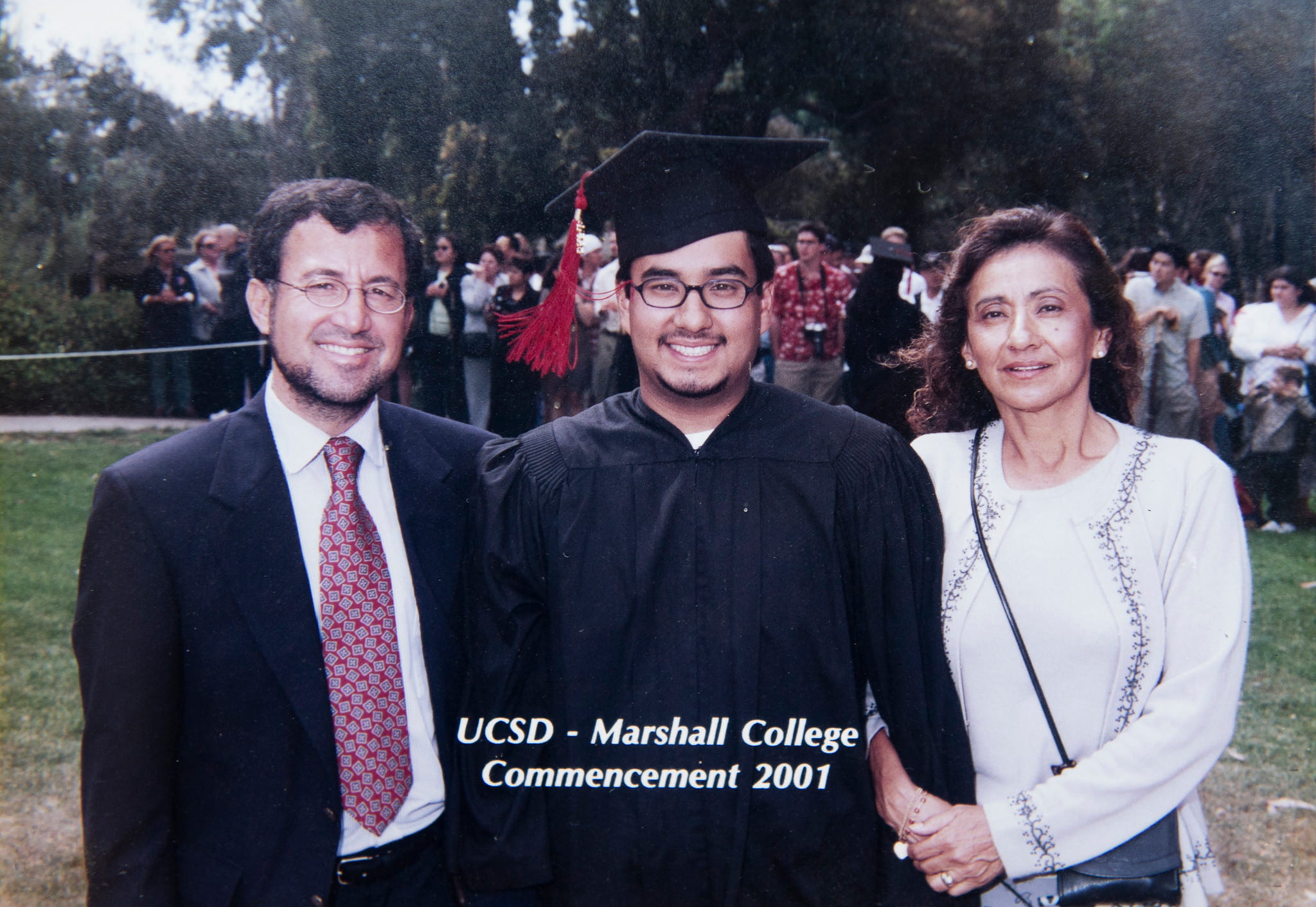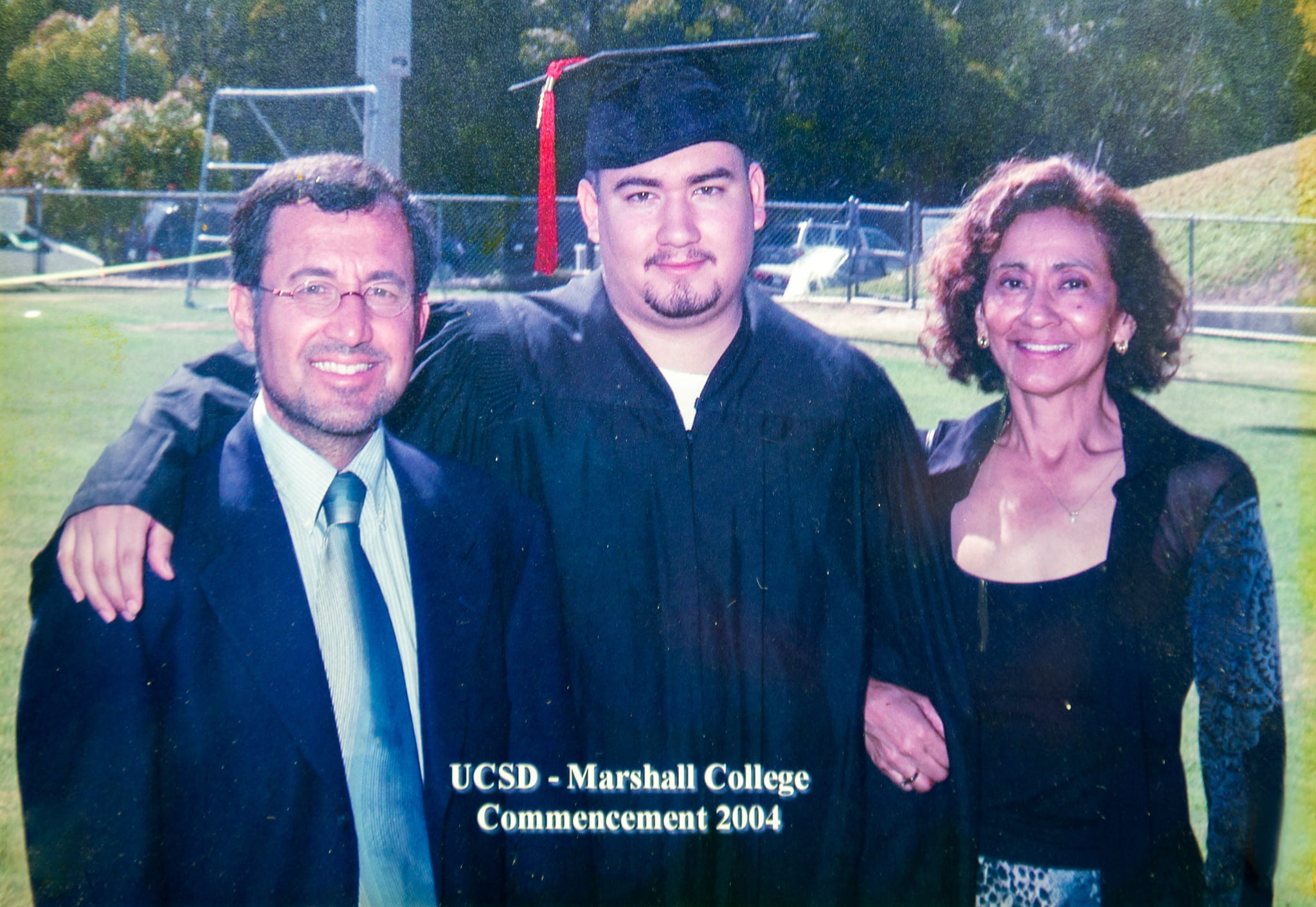Family Legacy
A lifetime of service inspires a gift for student scholarships.
Published Date
Story by:
Media contact:
Topics covered:
Share This:
Article Content
This story was originally published in the May 2022 edition of Triton Magazine, now UC San Diego Magazine.
When summertime approached San Diego’s Hoover High School in the mid-1960s, and students started talking about their plans to hit the beach or go on vacation, Jorge Carrillo ’72 remembers being silent. He already knew where he’d be heading for the summer, the same place he and his family always went: up to central California, where they worked in the fields, first picking peaches and raspberries in the town of Selma, then to Hollister and Gilroy for apricots and garlic, and back down through Fresno picking grapes for wine and raisins. Together, with parents and grandparents, they would earn enough to supplement their income and return back to San Diego, often a few weeks after the start of school.
Today, Carrillo recalls this migrant work with pensive objectivity, recounting the difficulty of that life and the dismal conditions. He remembers working a minimum of 10 hours a day, six days a week and often in 90 to 100-degree heat, living in campsites, cooking over a fire and sleeping in tents or an occasional shed, often on discarded mattresses, cots or old blankets. He and his family woke before dawn to work as much as they could while the day was cool, contending with wasp nests and black widow spiders, as well as white powdery pesticides that once sent a 12-year-old Carrillo to the hospital for a week with an adverse reaction.
The program was an early version of what is now UC San Diego’s Summer Bridge, and then as now, it was a lifeline for Carrillo and others. The program also provided Carrillo with a friend group that lasted throughout college, as well as introduced him to his lifelong companion when he met Raquel Salazar Carrillo ’72. While the pair would eventually marry years later, they first found a meaningful bond in sharing the many parallels of their upbringing.
“My wife was the oldest of 10 and was responsible for raising her brothers and sisters at a young age. So, we both felt that family responsibility in our lives, and when we came to UC San Diego, it was like a liberation—an opportunity to explore and experience a lot of things that we never had the chance to,” recalls Carrillo.
"When we came to UC San Diego, it was like a liberation—an opportunity to explore and experience a lot of things that we never had the chance to."
This was until one summer, when Carrillo did not go to work in the fields. His brother was about to enter UC San Diego and enrolled in a summer college readiness program, the same one Carrillo would enter as he, too, came to campus the following year.
“I knew that education was a way out for me. And in that summer program, I met a lot of other students from underrepresented backgrounds. We had some excellent teachers who taught us what to expect from college, how to think critically and how to write better,” says Carrillo. “Honestly, I would not have made it without that sense of support and belonging.”
Their horizons expanded intellectually as well, as justice and equality were in the air as the campus was flush with social activism. Carrillo and many in his summer cohort joined organizations like the Black Student Union and MEChA, a Chicanx student organization, both of which were determined to steer the focus of the then-upcoming Third College toward equality, diversity and inclusion. Taking part in that grassroots work inspired Carrillo to point his studies toward law and public service, a profession where he could help people, knowing firsthand the plight of migrant workers who were often victims of an unregulated industry.
“I was young at the time, but I vividly remember an instance when a farm owner started a bidding war among us workers to undercut our wages because we were all so desperate for work. I felt deeply the unfairness and exploitation of that. And having been in such a situation, I knew it was important to use the education and skills I had gained to help people still in those conditions.”


Carrillo soon had that chance to help—in 1975, while he prepared for the bar exam after attending law school at Stanford, the state of California passed the Agricultural Labor Relations Act, which essentially extended the rights of the 1935 National Labor Relations Act—including the right to union representation—to agricultural workers, who had previously been excluded from the law. Carrillo jumped at the chance to serve on a taskforce to implement and enforce the new law.
“With workers at every farm in the state suddenly having the right to organize and hold an election, we had more elections in the first five months of our statewide operation than the National Labor Relations Board had nationwide in its first year,” he says.
Carrillo worked for the Agricultural Labor Relations Board for 10 years and was ultimately appointed as a board member as well, having received the support of labor leader Cesar Chavez in securing Senate approval. In those and several other roles throughout a long career in law and advocacy, Carrillo did just as he intended as a student—he helped people improve their working conditions and gain more control over their lives and livelihoods.

Now in retirement, Carrillo has hardly slowed down, but channeled his desire to make a difference back to UC San Diego, where it all started for him. He joined the Chicanx/Latinx Alumni Council (CLAC) and became co-chair of CLAC’s Student Outreach Committee, with the goal of helping recruit Chicanx/Latinx students and fostering their support while in college. He and his wife, along with their two sons, Andres Carrillo ’01 and Jaime Carrillo ’05, established a scholarship endowment to help students in financial need, but they did so with a twist: the Carrillos scholarship comes with a letter to the recipient.
“We want them to know that we came from humble beginnings and overcame many obstacles to succeed—and that they can do the same,” says Carrillo. “We want them to know that the endowment was funded through hard work, and though sacrificing a significant portion of our safety net, we want to help give them the opportunity to achieve their goals, just as others helped us in college. We let them know how fulfilling it was for us to have careers in public service and helping others. Finally, we express the hope that they consider the possibility of making future contributions of their own to UCSD scholarships, to help future students with financial need, and keep this legacy going for others.”
 LEARN MORE ABOUT HOW YOU CAN SUPPORT UC SAN DIEGO »
LEARN MORE ABOUT HOW YOU CAN SUPPORT UC SAN DIEGO »
You May Also Like
Stay in the Know
Keep up with all the latest from UC San Diego. Subscribe to the newsletter today.





